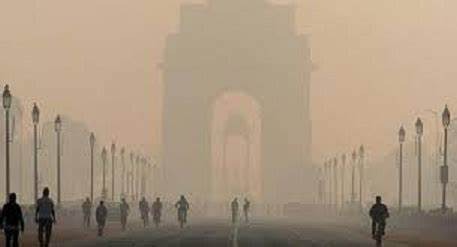 Introduction to the Rising Air Pollution in Delhi NCR
Introduction to the Rising Air Pollution in Delhi NCR
Air pollution in Delhi National Capital Region (NCR) has reached critical levels, causing distress to its residents. The Air Quality Index (AQI) has consistently surged beyond 400, signifying severe air quality. It appears as if the entire NCR has transformed into a gas chamber. In response to this, the Delhi government has declared a two-day holiday for schools to mitigate exposure to hazardous air.
Alarming Air Quality Index (AQI) Levels
The quality of air in Delhi NCR has reached alarming levels, with AQI exceeding 450 in several areas. To combat the worsening pollution, the government has imposed restrictions on non-essential construction activities and diesel-operated trucks in the capital.
Government Measures to Tackle Pollution
The Central Pollution Control Board (CPCB) released data on Friday morning, indicating an AQI of 459 in Delhi, falling within the “severe” category. In neighboring Noida, the AQI stands at 418, though there have been slight improvements. Ghaziabad recorded an AQI of 363 on Friday morning.
Impact on Health and Daily Life
In light of the increasing pollution, the Delhi government has made a significant decision. Nursery to Class 5 schools will remain closed for two days, on November 3rd and 4th, to protect children from hazardous air. Online classes are recommended as an alternative by the Directorate of Education. However, Noida and Ghaziabad have not yet decided on school closures, but given the deteriorating air quality, they may soon follow suit.
Restrictions on Construction and Diesel Vehicles
The slow-moving air and the onset of mild cold have trapped particulate matter in the atmosphere, making the air quality even worse. The Environment Pollution (Prevention and Control) Authority (EPCA) has enforced stringent measures under the Graded Response Action Plan (GRAP) in Delhi NCR.
Implementation of Graded Response Action Plan (GRAP)
Under GRAP, private construction activities are banned. Even before Diwali, restrictions on painting and drilling work are in place. In Delhi, the operation of vehicles with Bharat Stage-3 (BS-3) petrol and BS-4 diesel engines has been temporarily halted. These restrictions apply to both commercial and private vehicles.
Role of Crop Residue Burning
Crop residue burning is also a significant contributor to pollution in the region. The smoke from burning agricultural waste in nearby states adds to the already polluted air in Delhi NCR. Implementing measures to tackle this issue is crucial to curbing pollution.
Awareness and Civic Responsibility
It is essential for residents to be aware of the severe consequences of air pollution and take responsibility for reducing their contribution to it. The use of public transportation, carpooling, and reducing the use of personal vehicles can significantly impact pollution levels.
The Importance of Sustainable Practices
Promoting sustainable practices like using renewable energy sources, reducing waste, and supporting green initiatives can help alleviate pollution in the long run. Governments, industries, and individuals need to work together to combat this pressing issue.
Conclusion
The rising air pollution in Delhi NCR has become a public health emergency. Government measures, public awareness, and sustainable practices are essential to address this crisis. It is high time that individuals and authorities take proactive steps to improve air quality.
In conclusion, the air quality in Delhi NCR has deteriorated significantly, prompting the government to take urgent measures to protect public health. The situation emphasizes the need for sustainable practices, individual responsibility, and government intervention to combat the growing menace of air pollution in the region.
 Suspense Crime Sach Ka Dam
Suspense Crime Sach Ka Dam


